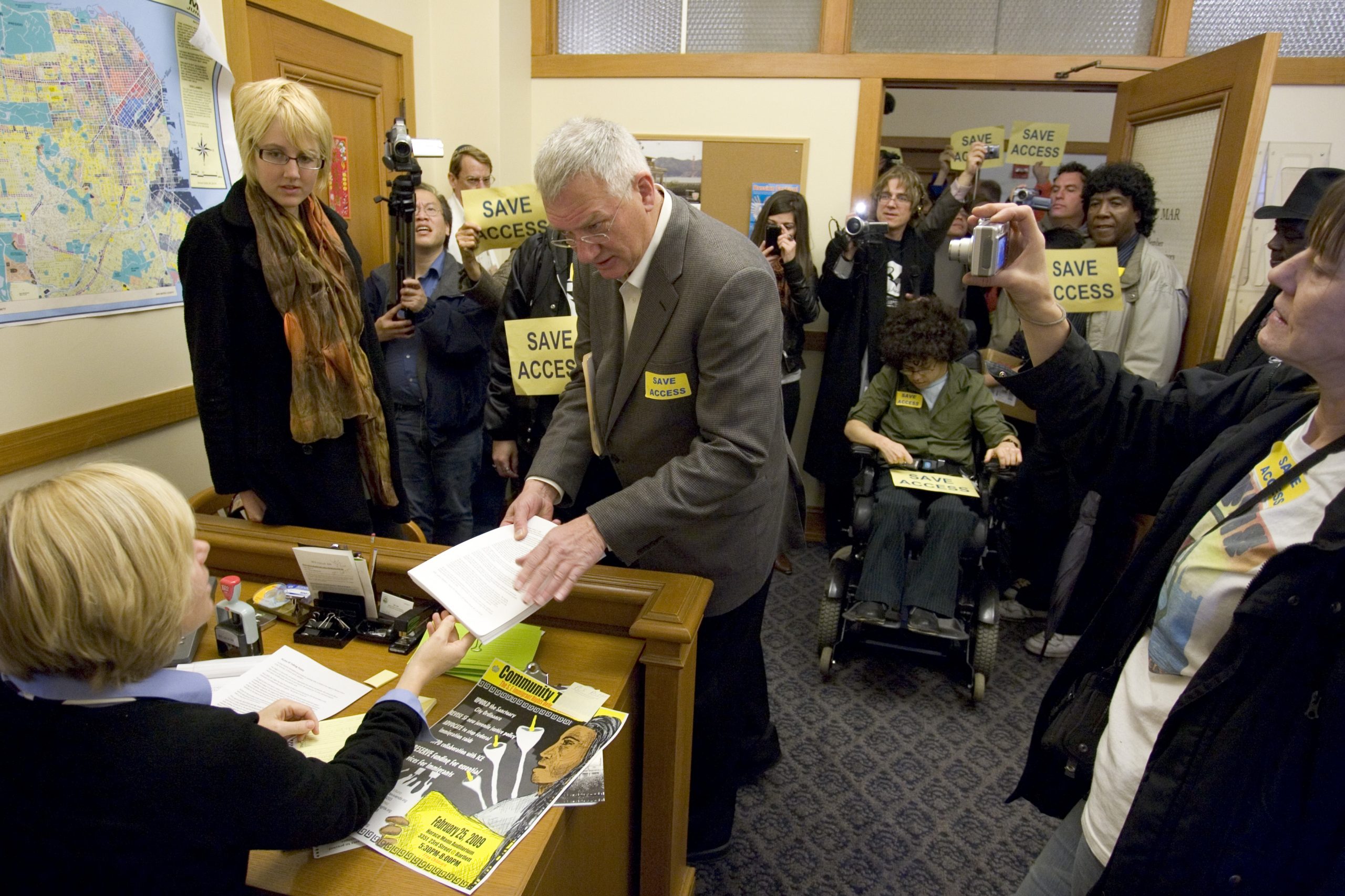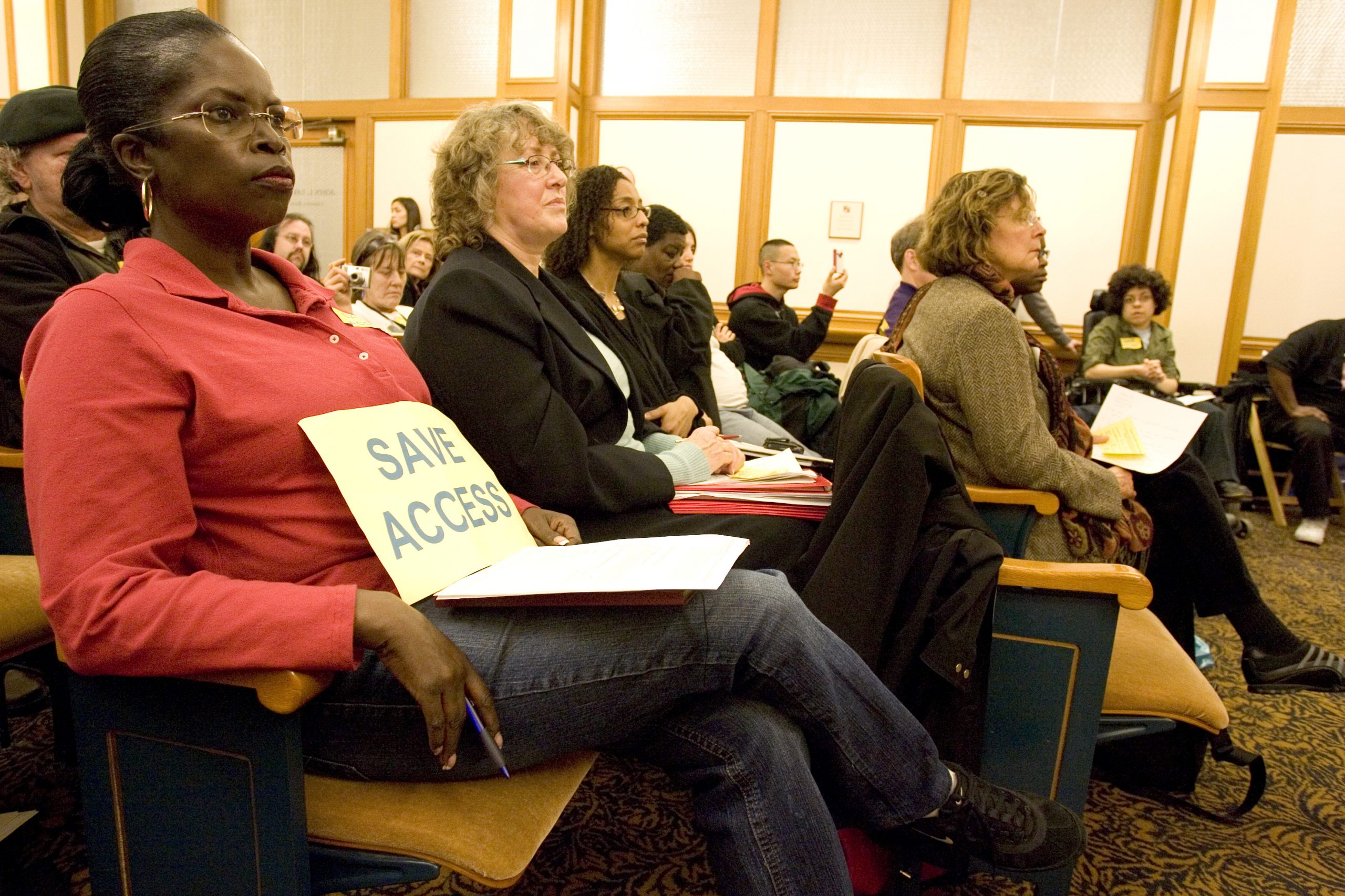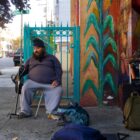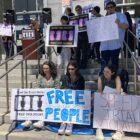Supervisors urge Sacramento to reverse law that de-funds community stations this year

Advocates for public access say cutting programs like “Newsroom,” “Democracy Now” and “SF Live,” as well as “CHALK/Youthline” programming for youth and “Tranny Talk TV,” would silence unique voices of volunteer media makers whose stories aren’t carried by the commercial TV networks.
“Our free speech is about to be diminished,” said Zane Blaney, executive director of Access SF, who has joined with Mirkarimi to decry the end of public-access television. Blaney said that a 2006 change in state law leaves San Francisco’s public-access TV with about $120,000, “which is enough to run the lights and the air conditioning.”
The California Legislature passed the Digital Infrastructure and Video Competition Act in 2006. It took the control of cable franchises away from local city governments and allowed for statewide video and cable franchises. On Jan. 1, 14 public access stations in Los Angeles were closed because they lost franchise fees.
Federal and state telecommunication laws still require cable operators to provide capital funds to cities for equipment for public, education and government channels. But under the new state law, cable channels are now regulated by the California Public Utilities Commission instead of cities and are no longer required to fund the stations’ operation.
Tracy Rosenberg, executive director of Media Alliance, an Oakland-based membership and advocacy organization for media professionals, echoed Blaney’s concerns. She said that public-access television “is one of the few spaces in the mass communication architecture for real people and unfiltered voices.”
“We have a huge digital divide in our country,” Rosenberg said. “For those that aren’t linked in to technology, public access television is all they have.”
She added that many local nonprofit organizations would find their outreach programs hobbled by the cuts to “priceless and irreplaceable” programming.
Mirkarimi – a key supporter of public access – said he is afraid that media democracy has become “an endangered species.
“The working class now have very little access because of the hacking away of public access,” Mirkarimi said. “It completely exacerbates class lines.”
 In late February, a committee of the Board of Supervisors heard public testimony on the resolution for more than two hours. Three supervisors heard from speakers representing neighborhoods, hosts of public-access shows, programmers, producers and educators. (To see video from that event, click here.)
In late February, a committee of the Board of Supervisors heard public testimony on the resolution for more than two hours. Three supervisors heard from speakers representing neighborhoods, hosts of public-access shows, programmers, producers and educators. (To see video from that event, click here.)
Access SF provides more than 2,500 hours of local, community-based programming, as well as community media services and training to local nonprofits and the public. In addition to the franchise fee from Comcast, Access SF’s subsidy also comes from Astound Broadband, a local cable company, and AT&T, which lobbied for the state law that cuts public access funding and sent lobbyists to San Francisco city hall Tuesday. After several attempts, The Public Press was unable to reach anyone at AT&T for comment.
“This situation is causing the public-access system in California and nationwide to be gravely threatened, ending a four-decades-long tradition of free speech and grassroots, community-based television programming in California,” Blaney said. “It is unthinkable that the voices of thousands of San Franciscans could be silenced by the inflexibility of the cable and video industry on this issue.”










